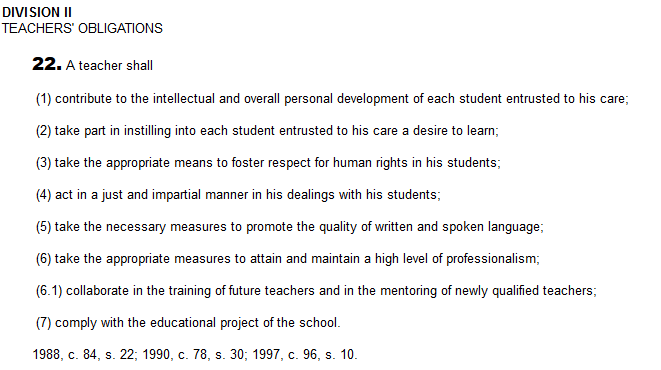Watch this video and ask yourself: Do I know this teacher? Am I this teacher?
And then ask: How can I guide or be guided through the shift towards improved student-learning?
In the video I say that the answer is simple – just shift a la ‘just do it’ mentality but in reality the shift is not as simple as all that. If it were, I’d like to think we would all naturally make shifts as they are needed.
No teacher wants their students to fail, to be bored, to drift away. So something is keeping us doing things that are not working for most of the people in our care. We tend to point towards outside factors – students getting younger (in Adult Ed in Quebec we are getting more and more students between 16 and 24 ever since they (re)started a new streaming type of programming in the high schools), too much technology, larger class sizes, too much administrivia, lack of instructional material, multi-level classes… – over which we have little to no control and get angry about it. I love how Sheryl writes: What makes you most angry about education? Guess what? That isn’t the problem. in Break Down, Rebuild, Start Fresh. She advocates for focusing on those things over which we do have control and sharing our successes with others.
We. We have control over the climate in our classrooms.
We can choose to remain angry or complacent and teach the way we have always been teaching and then becoming even more angry or complacent as it continues to not work for the majority of our students and for us.
We can choose to make a shift and then to seek out the guidance we may need to help us in that choice.
We can choose happiness and success over anger and complacency. Really. We can.
Have you started this shift in your own practice? How?
Have you guided someone through a shift? How?




